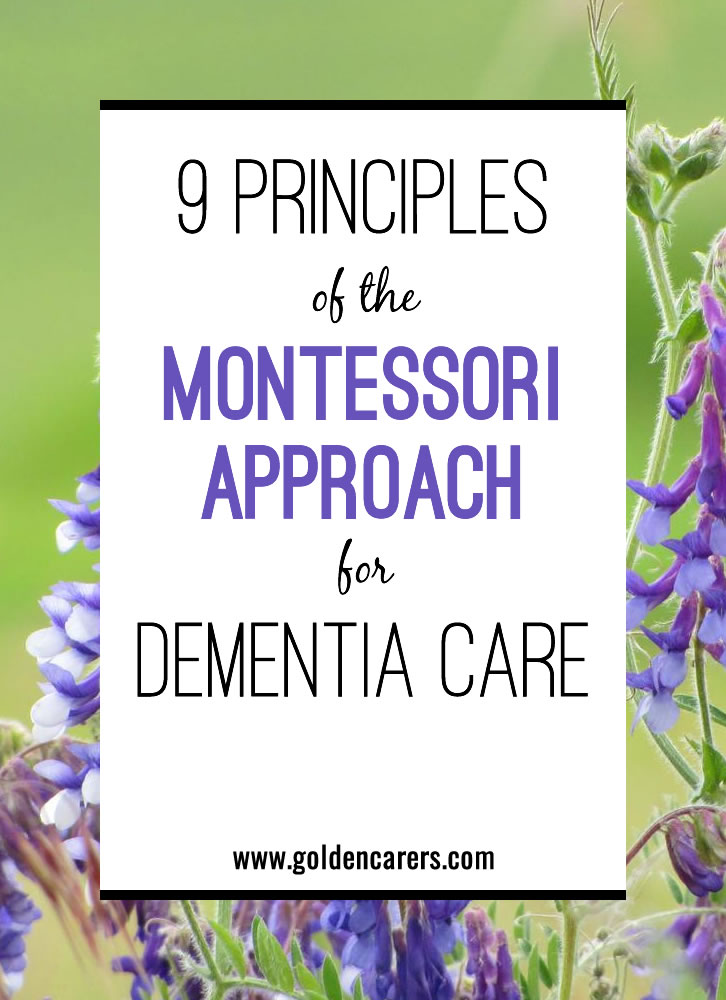
9 Principles of the Montessori Approach for Dementia Care
Found In: ›Activities ›Articles ›Alzheimer's & Dementia

People living with dementia deserve to live to their full potential, with meaningful activities and the right support to achieve maximum engagement in social and leisure pursuits.
Engagement and participation are good indicators of quality of life for nursing homes and other senior care organisations.
In this article we cover:
- 9 Principles of The Montessori Approach
- 12 Examples of Suitable Montessori-style Activities
- What is Successful Engagement?
Related Activities
Comments Post a Comment
 11th Aug 2022
Activities Assistant
11th Aug 2022
Activities Assistant
 15th Aug 2022
15th Aug 2022


 11th Jan 2022
Activity Director
11th Jan 2022
Activity Director
Thank you for your kind words
I am glad this site is working out well for you
 11th Jan 2022
Activities COrdinator Registered Nurse
11th Jan 2022
Activities COrdinator Registered Nurse
I am employed as an activities coordinator within the inpatient mental health setting. I usually work in mental health recovery and rehabilitation yet was seconded to Aged care. I joined Golden Carers to learn and develop skills relating to Aged care. I have utilised the site almost every day. It has been a goldmine of ideas relating to activities as well as tips on how to work with the consumers. Thankyou so much for all of the information, support and ideas your site have provided. I have shared the information with staff in order that they to have the opportunity to learn as well as provide activities to do with the consumers. Best wishes for 2022.

 13 Reminiscing Themes for Seniors
13 Reminiscing Themes for Seniors
 4 Creative Activity Programming Ideas Residents will Love
4 Creative Activity Programming Ideas Residents will Love
 The Benefits of Mindfulness Meditation for the Elderly
The Benefits of Mindfulness Meditation for the Elderly
 How to Overcome Common Dementia Challenges in Group Activities
How to Overcome Common Dementia Challenges in Group Activities

